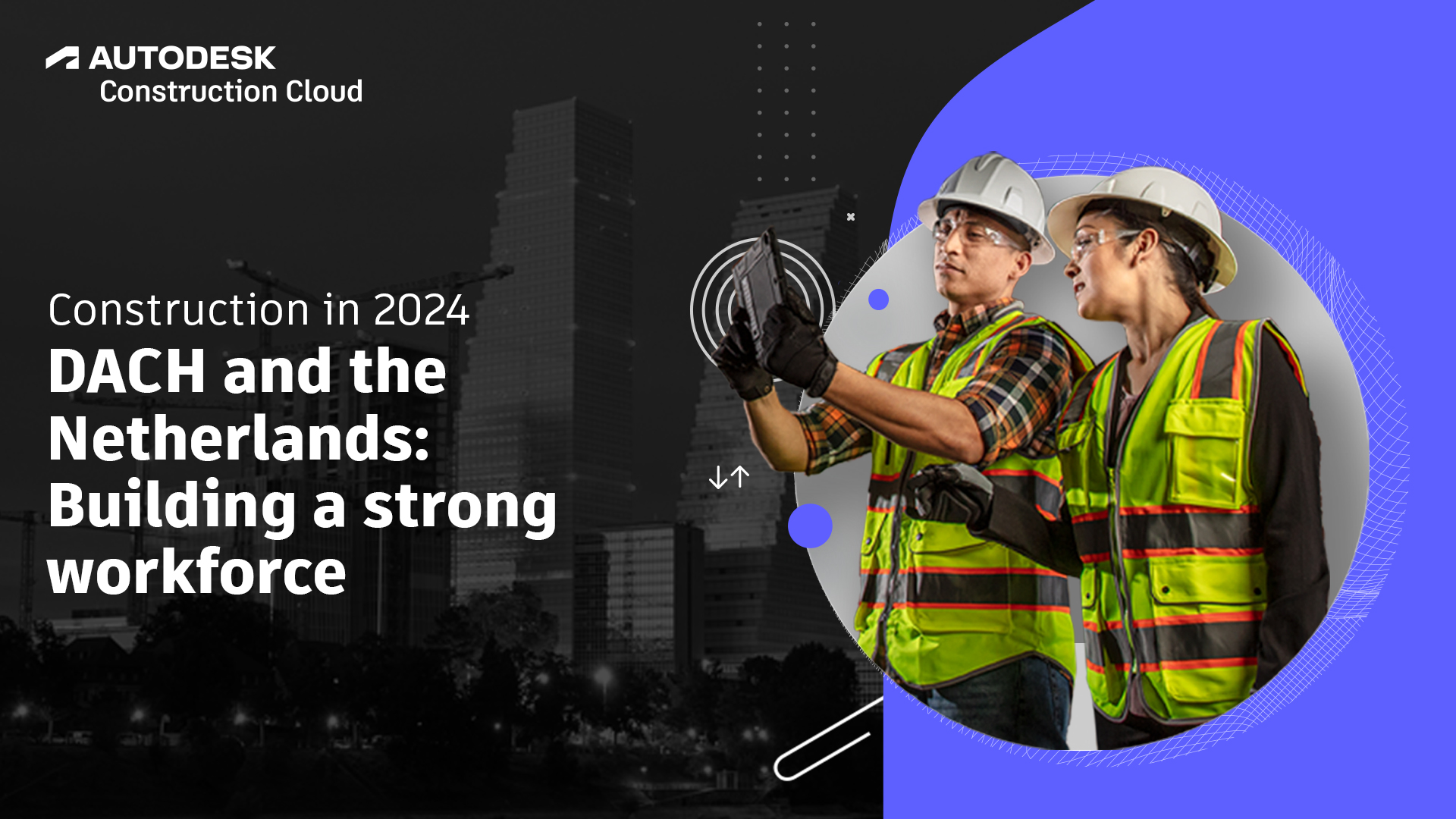
Construction across DACH and the Netherlands has reached an inflection point in 2024.
There’s greater focus than ever before on how we shape a built environment that will meet our future needs, with flagship projects like Roche Tower in Switzerland and the Hameln net zero retrofitting project pushing the boundaries of design.
But construction companies are facing clear challenges – from the pressures of inflation and new regulation, like the Wkb and the Environment and Planning Act (Omgevingswet) in the Netherlands, to the acute skills shortages across the entire industry.
Attracting and upskilling the right people will be key to construction’s future, so we’ve surveyed over 400 construction managers across Austria, Germany, the Netherlands and Switzerland to understand their talent challenges and plans for the future.
The year ahead presents a mixed picture for the construction industry. Construction volume in the EU is expected to decline by 1% in 2024, while Swiss construction companies are facing intense competition and even price wars.
However, the Autodesk research indicates that many organisations are positive about their prospects. Nearly three quarters of the construction companies surveyed are predicting an increase in revenue over the next financial year. The most common reason given for this success is offering modern methods of construction, like off-site manufacturing (34%).
To fuel this growth, over two thirds of the companies surveyed are planning to recruit in 2024 – but crucially, 81% are finding recruitment difficult.
Other construction companies, however, present a less positive picture. Nearly one in four companies are expecting revenues to fall – and by an average of 45%. People play a key role here too; the most common reason for this negative outlook is difficulty delivering projects due to skills shortages (41%).
With four in five construction companies struggling to recruit the people they need, competition for talent is high. There are several reasons behind this challenge. One third of professionals point to difficulties offering competitive salaries due to the increasing cost of living, and a further 30% highlight a shortage of skilled labour generally.
Importantly, the construction industry suffers from a poor reputation and this is impacting access to the talent pipeline, according to professionals. One in three say talent shortages are caused by the industry’s perceived image problem.
Professionals say there will be talent shortages over the next decade because construction is seen as a career of last choice by school leavers (23%) and it is less attractive than other sectors (20%). A further 23% believe there is simply limited awareness of construction career options.
Construction companies are recognising the need to invest in technology, sustainability and people as the industry evolves. Over the next two years, 29% of businesses will prioritise investing in IT and technology – the most popular answer. A further 28% will prioritise investment in their sustainability and environmental, social & governance (ESG) strategy.
As a result, construction professionals believe the skills required in the sector will shift over the next five to ten years. Capabilities in areas like artificial intelligence (28%), virtual reality (26%) and off-site manufacturing (25%) are expected to be in demand, in addition to traditional skills.
Firms aren’t only looking to new candidates to provide these capabilities. Investing internally to upskill the business is clearly a focus, as 27% of organisations plan to invest in training existing staff over the next two years.
Businesses are also clear on the need to broaden the talent pool to address skills shortages. One third of companies say that a lack of diverse candidates is causing recruitment challenges. Across the board, 79% of construction companies are prioritising hiring people from diverse backgrounds – although 21% believe their company isn’t currently prioritising this at all.
Companies across the Netherlands and DACH are investing in new technologies and ways of working, to make construction a more sustainable and productive industry. For construction to deliver its potential, it will be crucial to forge a strong, diverse pipeline of talent with the new skills and experience required.
Addressing construction industry’s image problem by raising awareness of how the sector contributes to society and the different roles available will help to attract new employees, while upskilling the whole workforce in digital construction will help to mitigate skills shortages.
And in the meantime, introducing digital tools that can enable employees to build right first time, reduce errors and cut administration time will help to deliver higher productivity.
Construction is changing, and it’s clear that many firms across the Netherlands and DACH are optimistic about what’s to come. But it’s vital that as an industry, we tackle people shortages and create a workforce fit for the future, so that more people can enjoy the wonderful opportunities of a career in construction.
